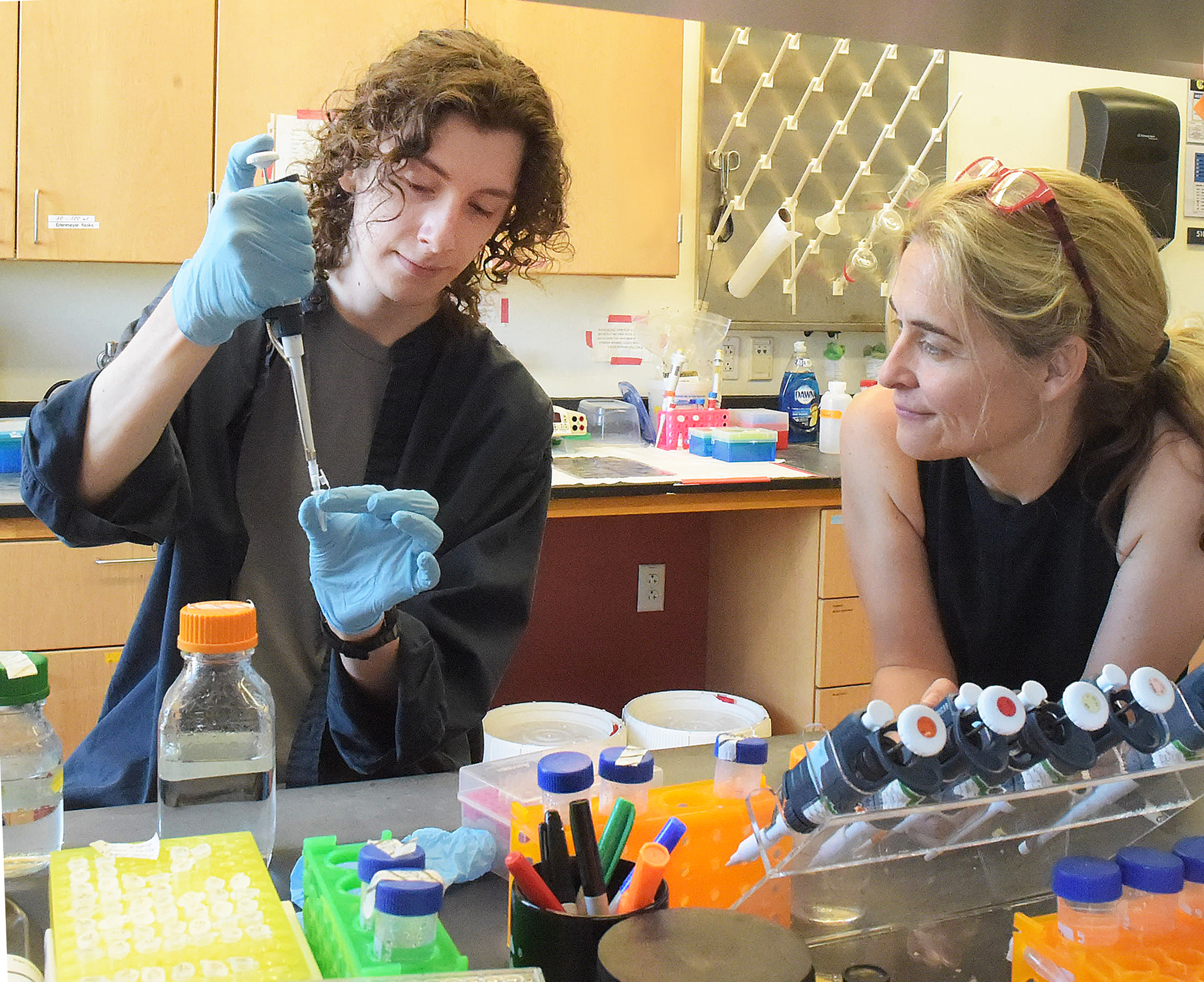A recent West Virginia University graduate was the recipient of the National Science Foundation Graduate Research Fellowship in recognition of his research accomplishments and his proposal for graduate-level research.
Noah Spencer, a biology major in the Eberly College of Arts and Sciences, May graduate and Honors Laureate, was mentored by Rita Rio, professor with the Eberly College of Arts and Sciences and proprietor of the Rio Laboratory, since he was a senior in high school.
Rio said Spencer, who was then attending University High School, approached her with an interest in her research and expressed a desire to become involved in Rio’s work. The two met and Rio gave Noah a copy of Martin Blaser’s “Missing Microbes,” asking that he touch base with her after he finished the book.
“I thought maybe he’d come back in a couple months or something like that, and Noah, I think within a week or two weeks, had read the book and was ready to discuss it. I was certainly in awe because I [thought] ‘Wow, this person is really a go-getter,’ ” Rio said.
Spencer began working in the Rio Laboratory at that point and stayed on with the lab throughout his undergraduate studies at WVU. Rio’s research focuses on invertebrate microbiota — the microbes that live on or within invertebrates — and how they shape the biology of those invertebrates, particularly concerning vector-borne diseases and how microbes can be applied to better human welfare.
Spencer’s proposal for his graduate research draws inspiration from the work he has been doing at the Rio Lab for the past five years. Having previously worked with tsetse flies, Spencer has become acquainted with and endeared to some of the stranger microbes associated with insects. Subsequently, Spencer decided to study cicadas for his graduate research.
“Cicadas are a really cool example because of some of the interesting things they have going on with the bacteria that they harbor and that they rely on for survival with their unusual lifestyle,” he said.
His chosen pursuit couldn’t be timelier as cicadas belonging to the Great Eastern Brood (Brood-X) have made headlines for the past several months while humans prepare for their 17-year emergence.
The NSF Graduate Research Fellowship Program recognizes and supports outstanding graduate students in NSF-supported STEM disciplines who are pursuing research-based master’s and doctoral degrees at accredited United States institutions.
The five-year fellowship provides three years of financial support, including an annual stipend of $34,000 and a cost of education allowance of $12,000 to the institution.
Spencer said receiving the fellowship was exciting. He thought he submitted a strong research proposal and being awarded the fellowship and reading the reviewer’s comments on his proposal served to validate his beliefs about his work, as well as the effort he’d put into his research and his undergraduate academics.
“I don’t want to say that I was overconfident or necessarily expected to be funded, because obviously it’s a very competitive process,” he said.
Spencer plans to pursue a Ph.D. in evolutionary biology at Arizona State University’s School of Life Sciences. There, Spencer will conduct his research with the McCutcheon Lab in the Biodesign Center for Mechanisms of Evolution.
Spencer was also named one of the WVU Foundation’s 50 Outstanding Seniors for the 2020–21 academic year.
TWEET @DominionPostWV




